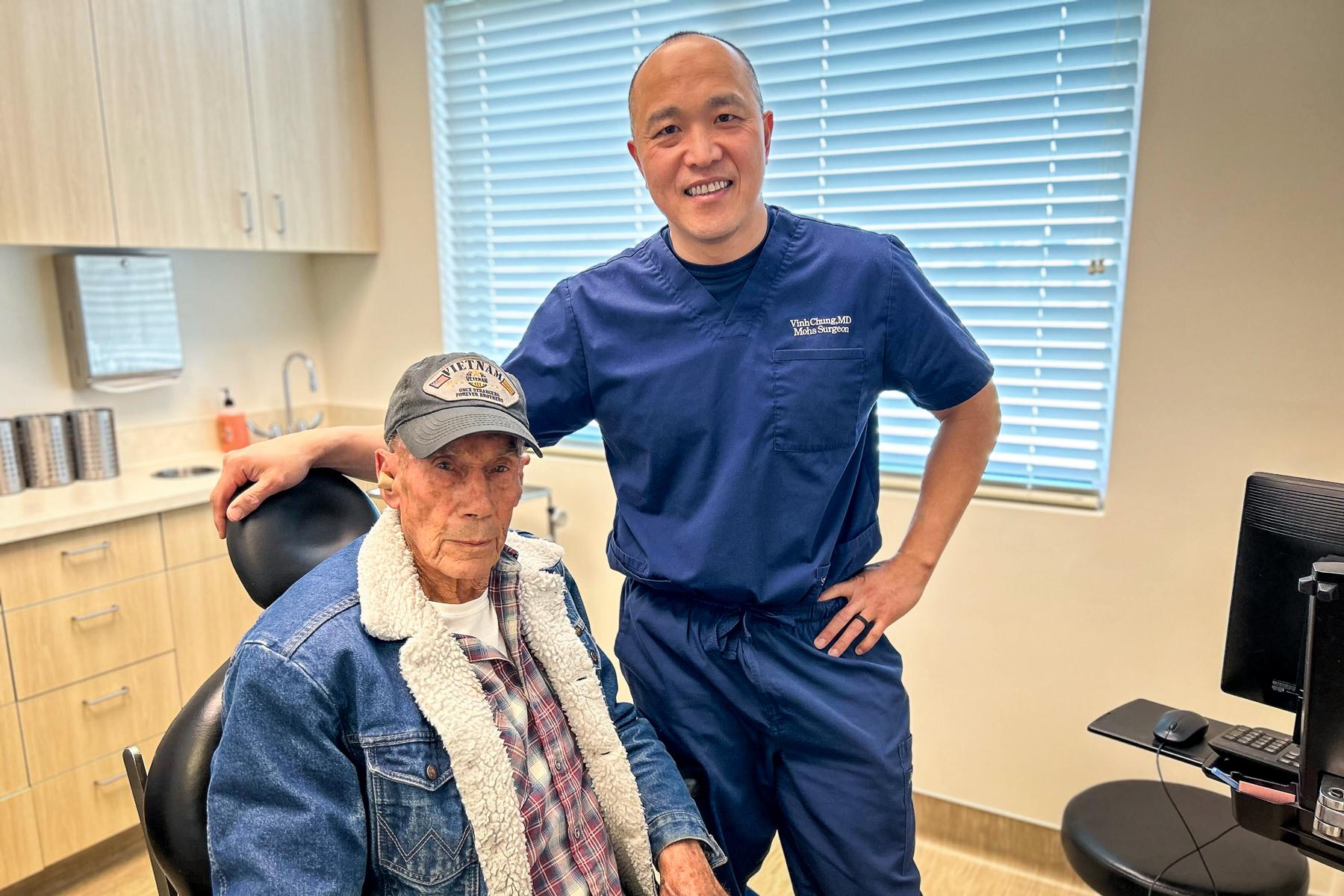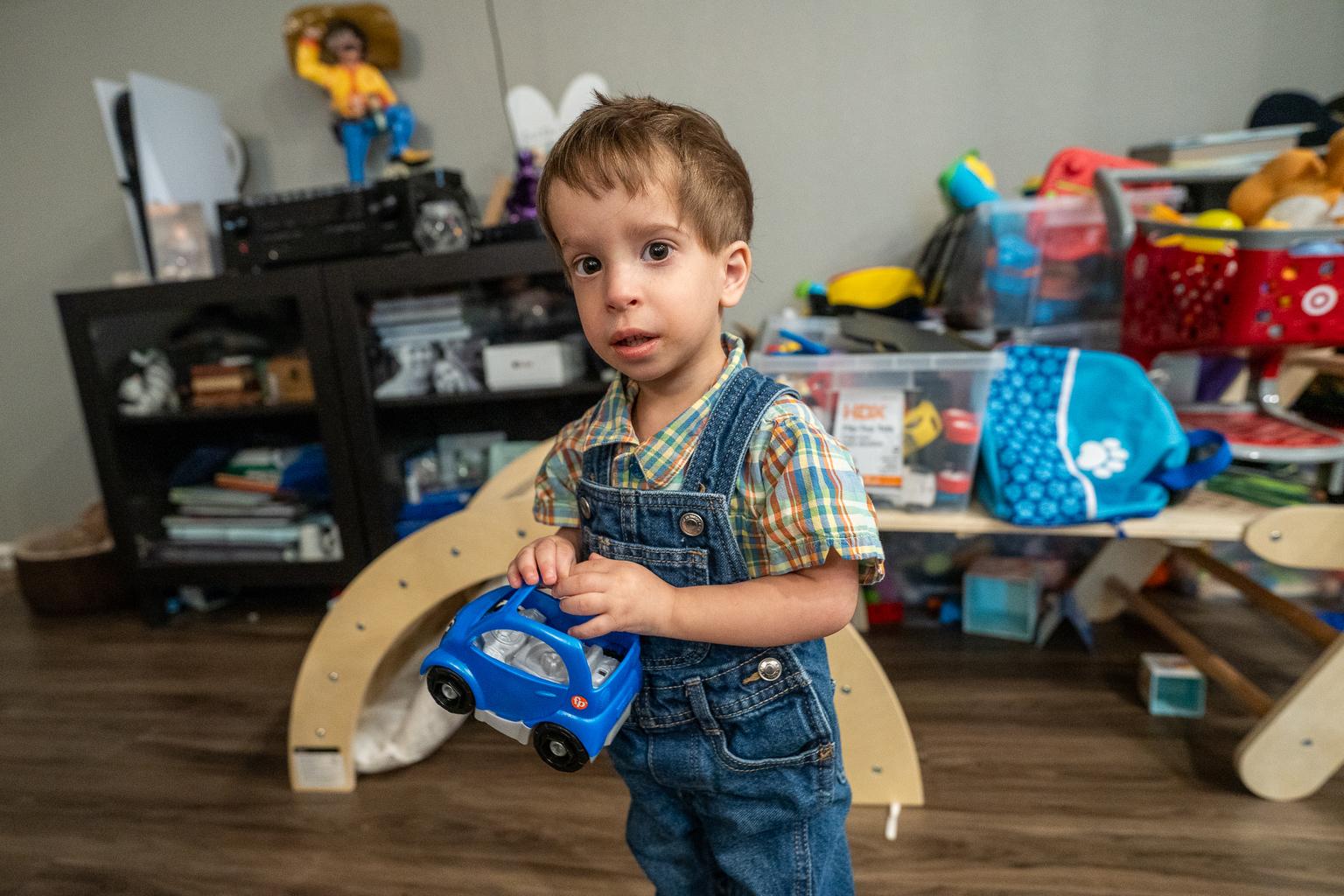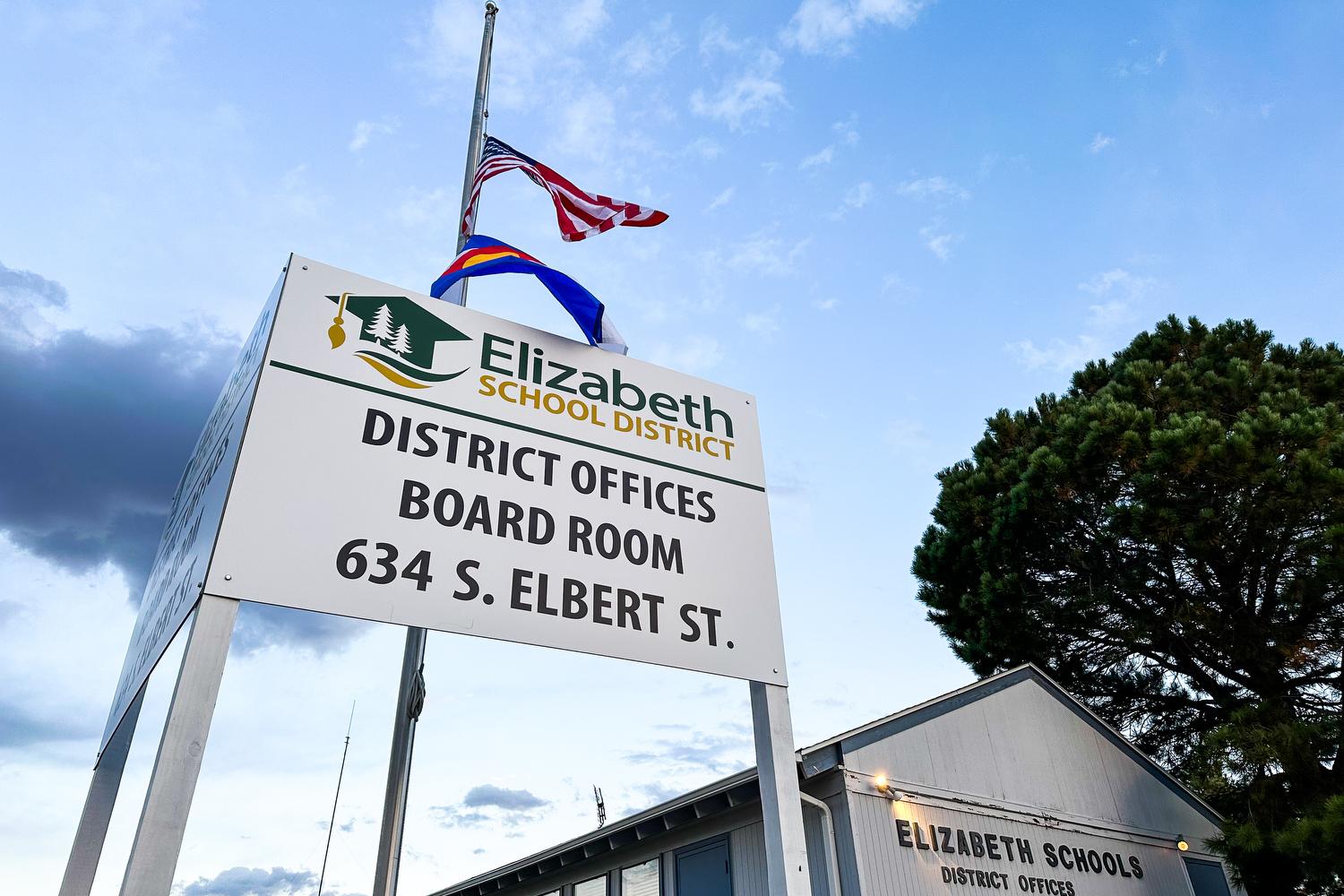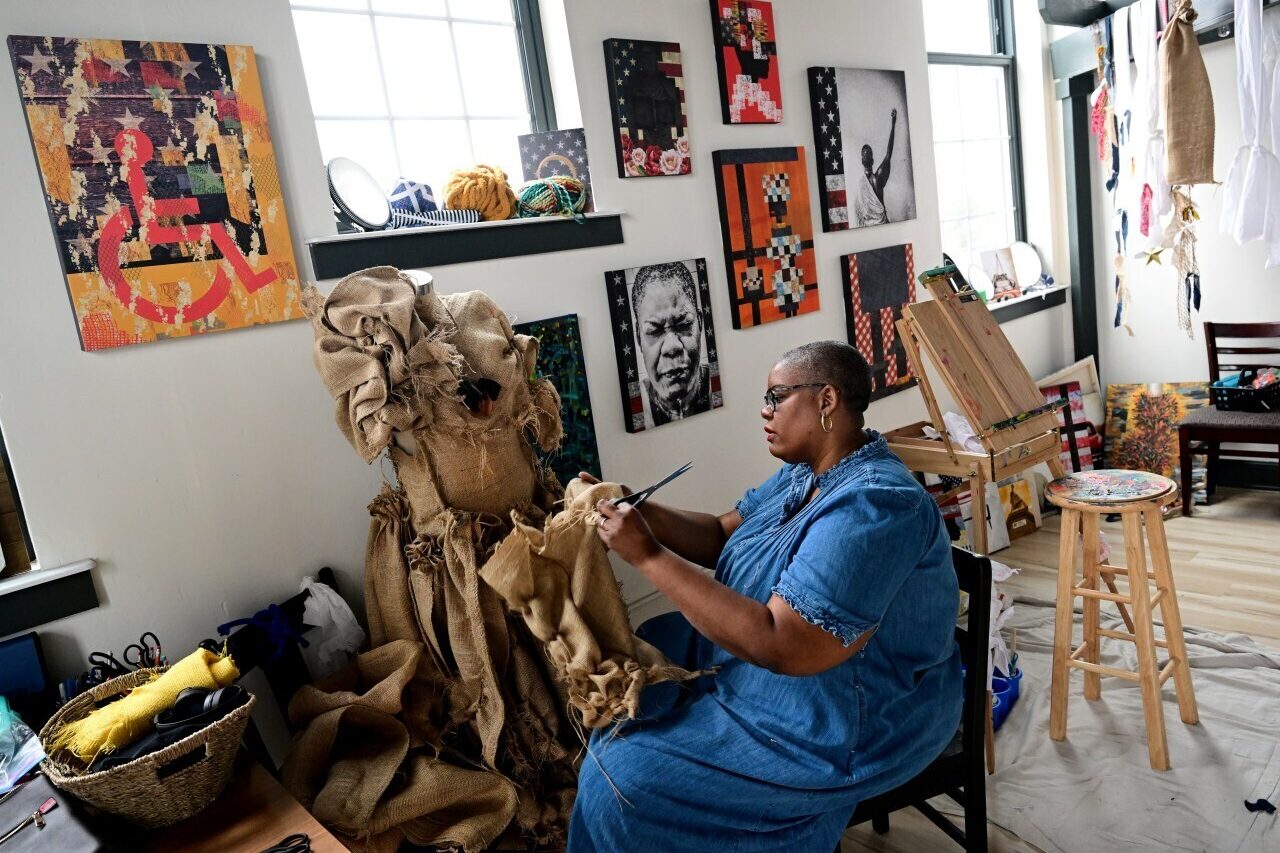
A pioneer from the dawn of rock and roll is the subject of a new exhibit at Denver’s Blair-Caldwell African American Research Library.
Sister Rosetta Tharpe started as a gospel artist in the ‘30s. Her approach as a singer and guitarist evolved over the decades to fuse spiritual and secular sounds into something groundbreaking.
During her years of research into Sister Rosetta, Denver artist Chloé Duplessis came to learn a lot about the woman behind the music.
“I was just struck by her commitment to curate and to present joy, no matter what she was going through,” said Duplessis. “She had a really hard life, for those who are willing to do the research on her. And in every performance, take after take, she was just committed to offering joy to people because she said she believed it's what they needed.”
Though many consider the 1951 song “Rocket 88” by Jackie Brenston and the Delta Cats to be the first truly rock n’ roll record, Joe Mazza, the music consultant on the DPL exhibit, argues that view overlooks Tharpe’s earlier contribution to the genre.
"Sister Rosetta recorded a song called ‘Strange Things Happening Every Day’ in 1944, so seven years before. And if you listen to those two records back to back, you say, ‘wait a second, this is the first rock-and-roll record,’” said Mazza,
As they worked to put together the DPL show, Duplessis and Mazza uncovered a Colorado Statesman article that confirmed Tharpe’s long touring career had a local tie.
"Sister Rosetta visited Denver in 1947 and performed at East High School," said Duplessis. "There is a very beautiful, lesser-known connection to Denver and we were thrilled to find that out."
While Tharpe was a trailblazer in many areas, Mazza has a special interest in her legacy on the guitar. For the project, he was particularly focused on unearthing more information about the specific instruments she used.
“She was an incredible solo guitar player long before we had what we called guitar heroes really. And she influenced so many players and she's known in much of the guitar-playing community,” said Mazza.
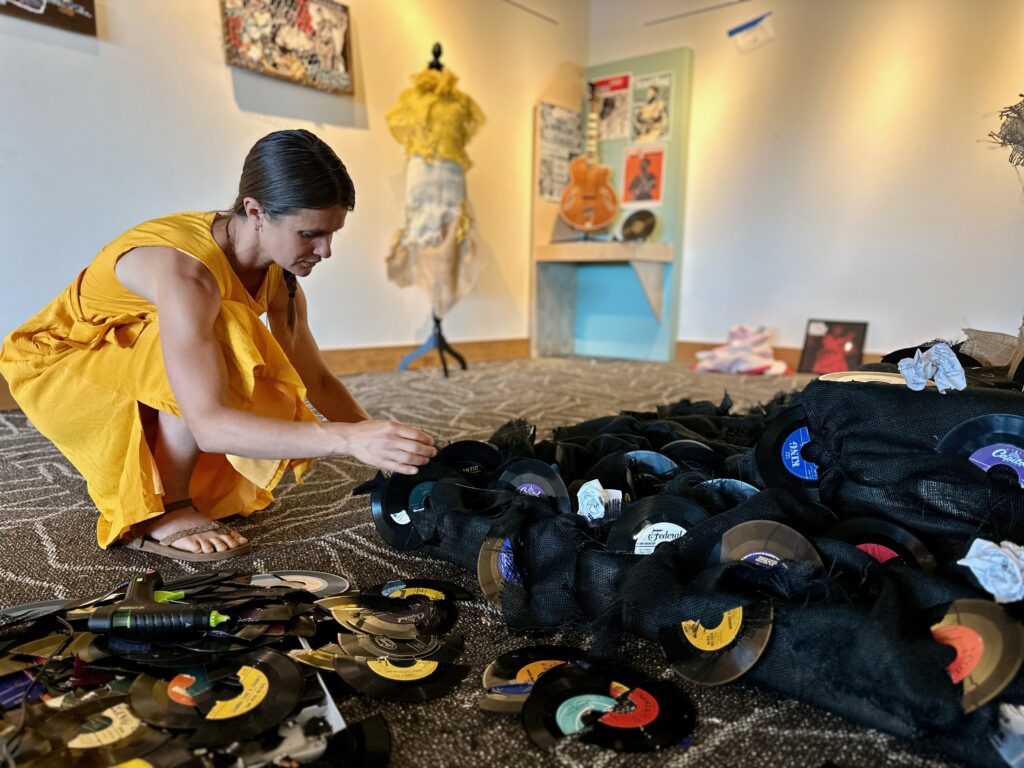
The show at the Blair Caldwell Library will incorporate photography and digital works but will have a special focus on Duplessis’ textile creations.
Duplessis’ background is in visual art. But she is progressively losing her eyesight and is now legally blind due to a genetic condition Stargardt’s disease, a reality that has led her to shift her focus to textiles.
“I was able to develop a system using my fingertips to create the work and still show up as an artist, as a creative,” she explained. “So this work has two or three digital pieces but mainly it is tactile — it is collage, it is beautiful, handmade fiber pieces, gowns and garments and things that are actual replicas and my takes on her beautiful performing legacy.”
Duplessis also partnered with artist and friend Shannah Bupp to design a “record garden” for the exhibition, using vinyl 45s from the ‘40s, ‘50s and ‘60s, as well as crafting paper flowers from Tharpe’s sheet music.”
The museum’s exhibition celebrates Black Music Month, Juneteenth, and Tharpe's local ties. Its opening reception on June 1 will include some of Tharpe’s lesser-known recordings. On the following Saturday, June 8, a pop-up recording studio will allow visitors to record their own version of a Sister Rosetta song.
“I'm a historian by trade, so it really is a cool way, I think, that Joe and I have come up with to create a different version of oral history involving the music, and I think it's going to be super powerful,” Duplessis said.
The final event of the show is on June 25, with an educational lecture with Duplessis and Mazza, covering everything from Sister Rosetta’s personal journey — from her roots and upbringing — to the evolution of the guitar, Tharpe’s musicianship, and how she continued to expand her practice and her legacy.
The "Sister Rosetta" exhibition runs through the end of August at Denver’s Blair-Caldwell African American Research Library.
Editor's Note: An earlier version of this story misspelled Jackie Brenston's name. It has been corrected.

